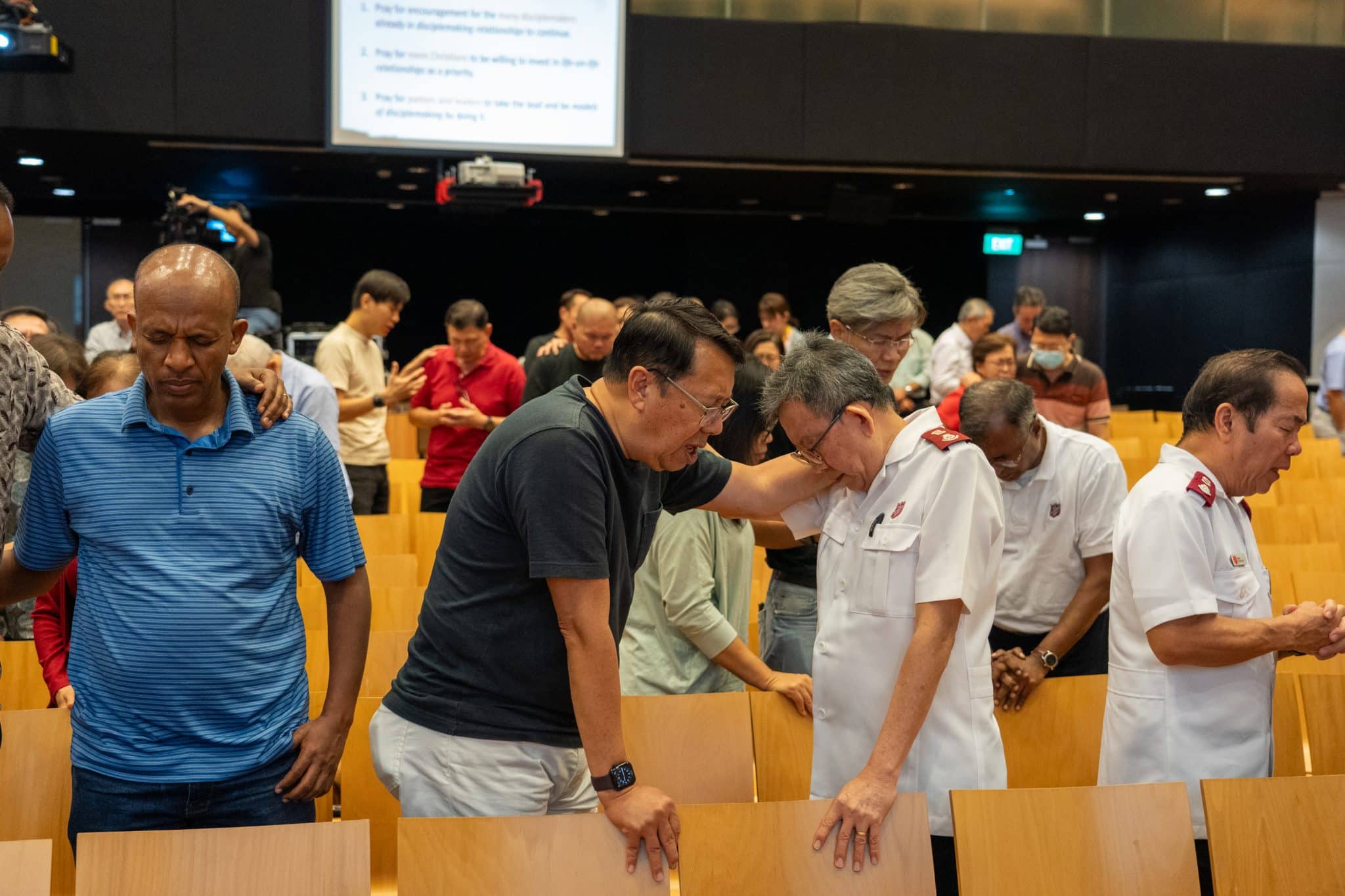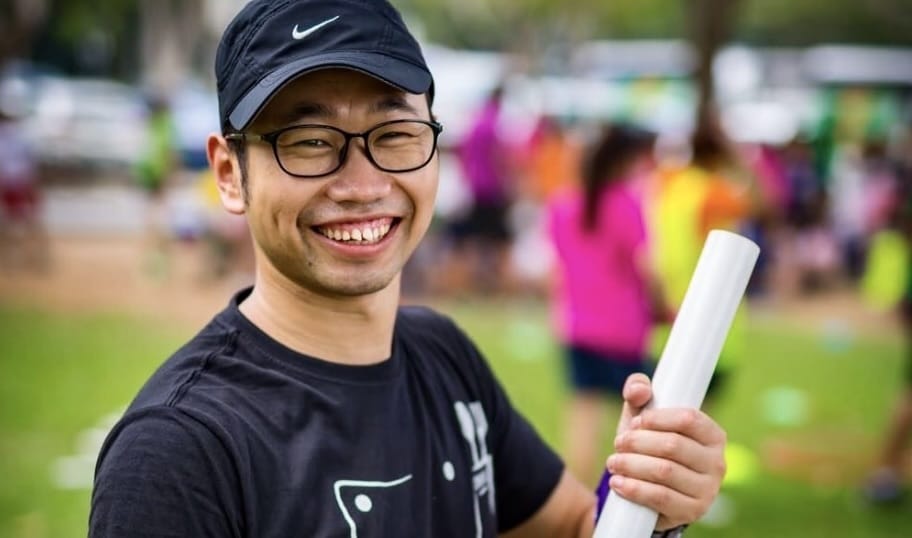“Instead of complaining about the Internet, can we make it life-giving?”: Lucian Teo
by Christine Leow // October 19, 2021, 1:05 am
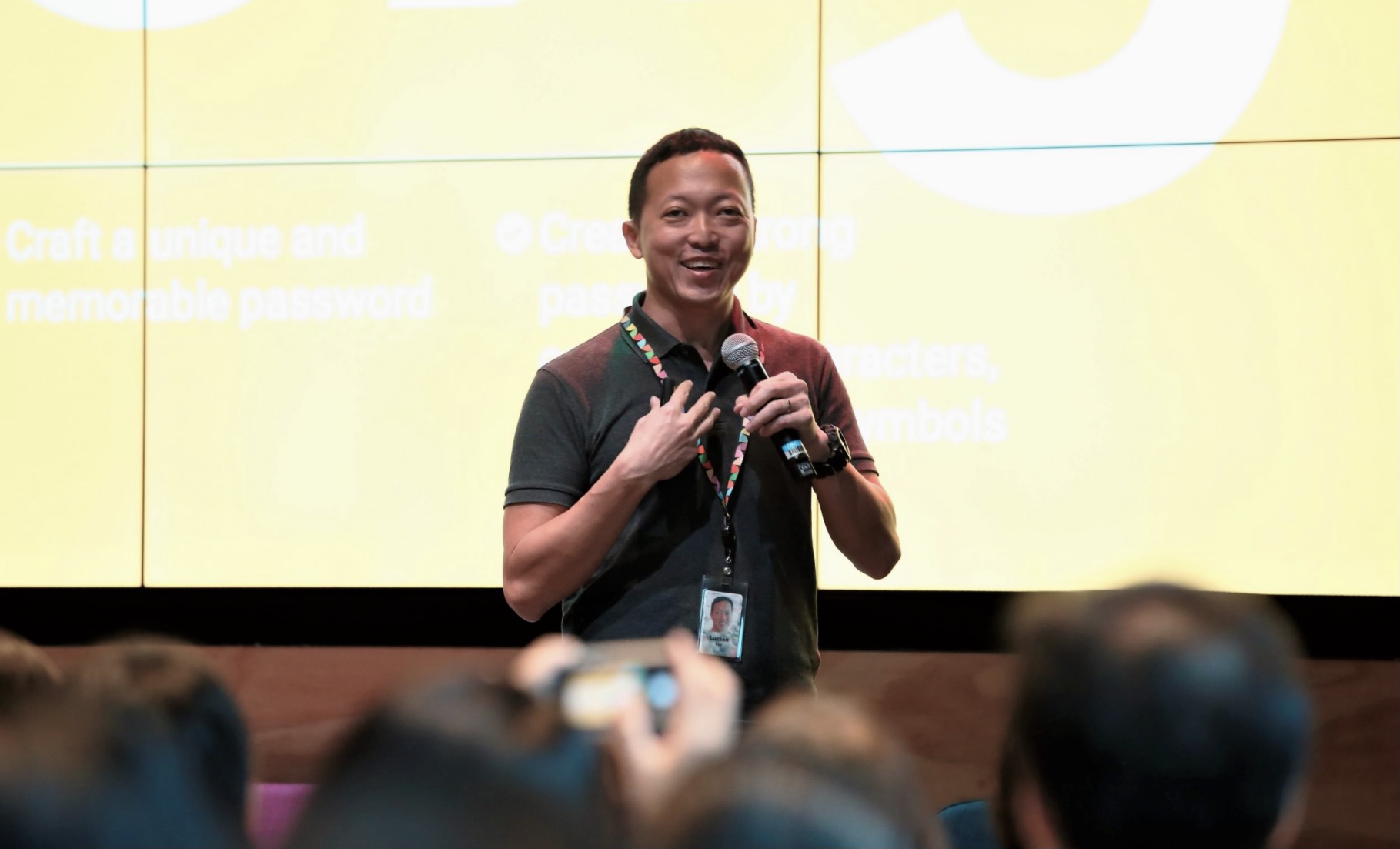
Lucian Teo, Trust and Safety Transparency Lead at Google, is a firm believer of the open web for good. He travels the world ensuring that people know how to use the Internet safely. All photos courtesy of Lucian Teo.
At nine, he taught himself computer programming and coded his first game.
In secondary school, he bought a modem when access to the Internet was not yet commercially available in Singapore and used it to communicate with people remotely.
While in university abroad, to avoid expensive long-distance calls, he created his first website to communicate with his then-girlfriend who is now his wife.
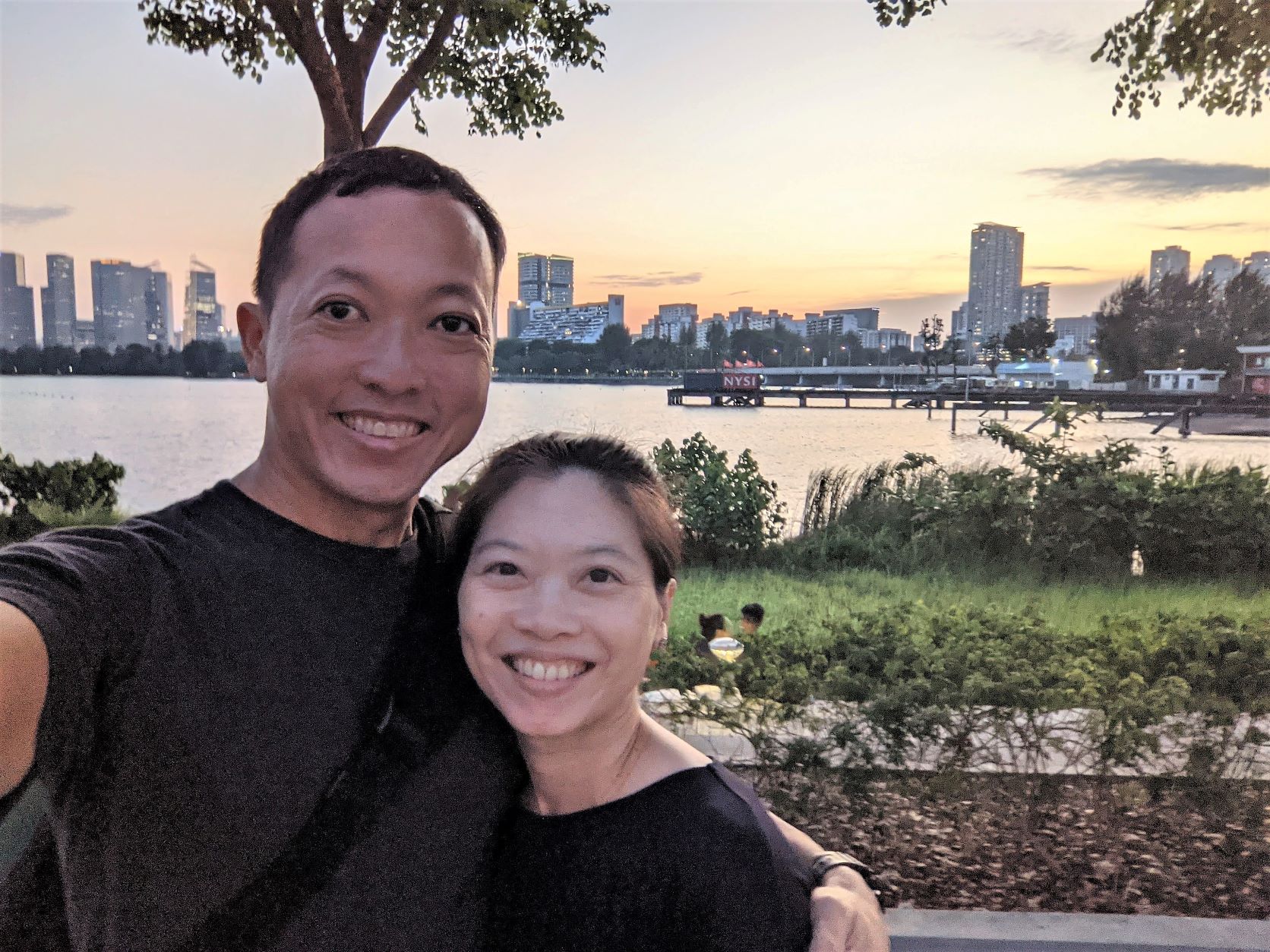
Lucian first saw his wife, Faith, when they were both in church. He was 11 then and was fascinated by the fact that she was the only one reading a book; he loved books as well.
But Lucian Teo, whose job at Google is to help people adopt safe digital habits, maintains that a tech career was never on his mind.
Says the 44-year-old: “I consider myself an Arts person. When I was in primary school, my dream job was to teach lit. I love reading, I love books and story-telling.”
“I believe in the power of the open web for social good.”
Despite his childhood dream, Lucian would grow up to be quite the citizen of the digital world.
He started his own web design studio, became an advocate for more effective use of technology within the government, pushed for web publishers to adopt open web standards, and now works for Google promoting online safety education globally.
In his own way, though, Lucian has managed to still live his dream of being a story-teller.
He writes on his LinkedIn page: “I believe in the power of the open web for social good, and how it enables communities to tell their stories, create immersive experiences spanning various mediums and collaborate across geographical, economic, social and cultural boundaries.”
Stepping into the virtual world
Lucian’s interest in IT began incidentally.
An avid reader, he came across a series of books in primary school that wove simple computer code snippets into the storylines.
“You typed the code out in BASIC, and it generated simple computer games that you had to solve to move the story forward. After a while, you learnt to read the code in order to cheat at the games.
“And later on, you realise you had learnt enough to create your own games.”
That was his first experience at coding.
When he was 13, he took his interest a step further. He bought his first modem for a princely sum of nearly S$400.
“I could communicate with people who lived in other countries. It opened up a whole new universe for me.”
“I wasn’t a very good student. In primary school, I spent all my recess time in the staff room being forced to do all the homework I had not completed. This meant I never spent any of my pocket money at the canteen.
“With my daily allowance of 50 cents saved, by the end of primary 6, I had a few hundred dollars.”
In the era before the Internet was available to the general population, the modem was a precious commodity. It allowed people who had modems and a phone line to connect with one another virtually.
“Suddenly, I could communicate with people who lived in other countries. It opened up a whole new universe for me.”
So, the introvert learnt a new way to make friends.
“There were these bulletin board services where you could call up a local number to get to a message board. From there, you could message people or pick up messages.
Finding Christ in cyberspace
It was through this virtual community that he made friends and connected with other Christians.
Lucian grew up in a Christian family. But it was a personal encounter that made him think seriously about his faith. He was in primary school and on the way to an art class when someone handed him a Christian tract.
“I read it and thought about it. At that time, I felt that my life had no meaning. I was a horrible student and was told that I had no future.
“Even if I did succeed in life, I could not bring any of my wealth or accomplishments past the grave.”
Christianity gave young Lucian a deeper meaning in life and a hope beyond the here and now.
He started going to church with his aunt and is still in the same church today. He even met his wife there.
The modem and the virtual message board opened up for him more opportunities to widen his Christian circle in person.
“Some of us would meet online almost daily and talked about everything – school, life, Christianity.”
Lucian admits that what he did then – meeting up with friends he had made virtually – would have been considered reckless by today’s standards
“But back then, it was a much smaller community and people were really who they said they were.
“The virtual community was such a beautiful place. We could share things we were not able to share with people in person.”
For Lucian, a lot of good came out of those early days of virtual connections.
“If you are willing to stand up for Christ, there is always a place for that. I was struggling with porn then and went to the message board to ask if anyone had the same problem.
“Only one person replied at that time, and we actually met up and prayed together.”
The fair number of friendships made online were so strong that when Lucian married his childhood sweetheart years later, he invited friends he had made on the Internet Relay Chat (IRC).
“During the days of IRC, some of us would meet online almost daily and talked about everything – school, life, Christianity.”
A path lit by God
Lucian would go on to study Management Information System at the University of Arizona in the US but he says this is all “by God’s grace”.
“It is all in God’s hands. God really covered me.”
His parents both worked and young Lucian was “out a lot, playing basketball”. It was when he was hanging out in his neighbourhood that he got involved with the wrong crowd.
While there was drug-taking and fights among the youths, they never let Lucian have a part in any of it.
“I was the youngest. They protected me from doing crazy things. They would say, ‘We do this but you don’t.’”
So, while things could have gone very wrong for Lucian, nothing ever did.
“This is a reminder that it is all in God’s hands. God really covered me,” says Lucian who is now a father of three, a 16-year-old daughter and two sons aged 13 and eight.
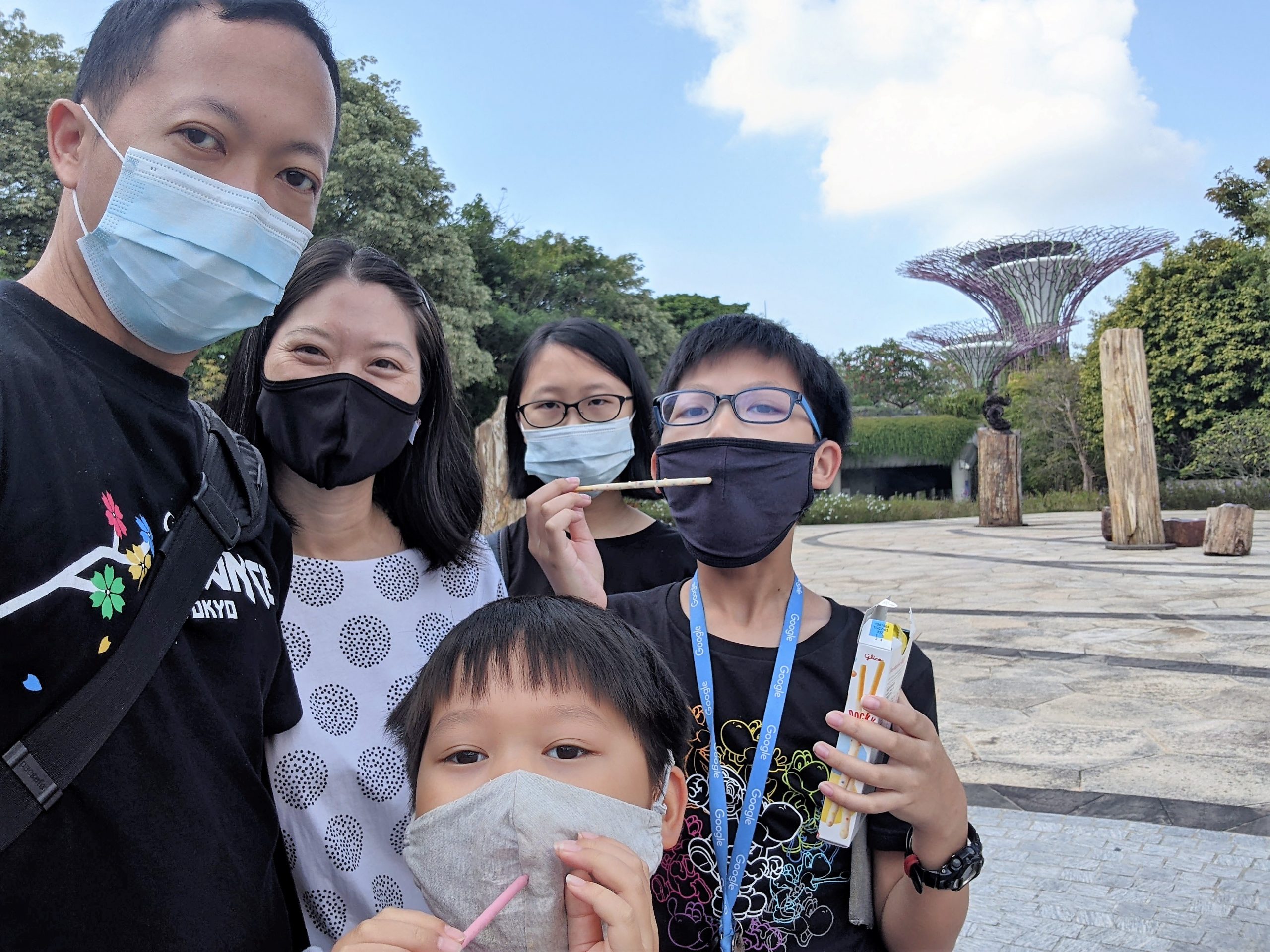
Lucian with his wife and three children.
This would be how his life would continue to be mapped out.
Lucian would find his direction again and again shaped by closed doors. He ended up in a polytechnic because his ‘O’ level results did not allow him into a junior college.
“God kept pestering me about why I held on so tightly to this list of schools in my head.”
“People always ask, ‘How do you know God’s will?’ For me, I wasn’t like all those smart people with so many choices.
“I didn’t have so many options to choose from. I just did what was available to me.”
He ended up at the University of Arizona in much the same way.
“I had a list of universities in mind – the universities were very reputable. You mention them and people would say they are good schools. It was my secret list. I never told anybody.”
But as he pondered his choices, he felt no peace.
“I couldn’t sleep because God kept pestering me about why I held on so tightly to this list of schools in my head.
“Then I prayed, ‘I surrender. Okay lah, whatever. Anywhere You lead is good.’ I gave up my list.
“After that, I slept really well.”
When it was time to apply for entry into a university, Lucian found that he has missed the deadline for every university except one – the University of Arizona. He not only got into the university, they gave him a scholarship.
For the love of a girl
In his first year at university, Lucian fell very ill over a long weekend break. Everyone had gone home for the holidays. He was alone.
“I had fever, back spasms. Calling home back then was very expensive and difficult but I needed to tell somebody about what was happening to me.”
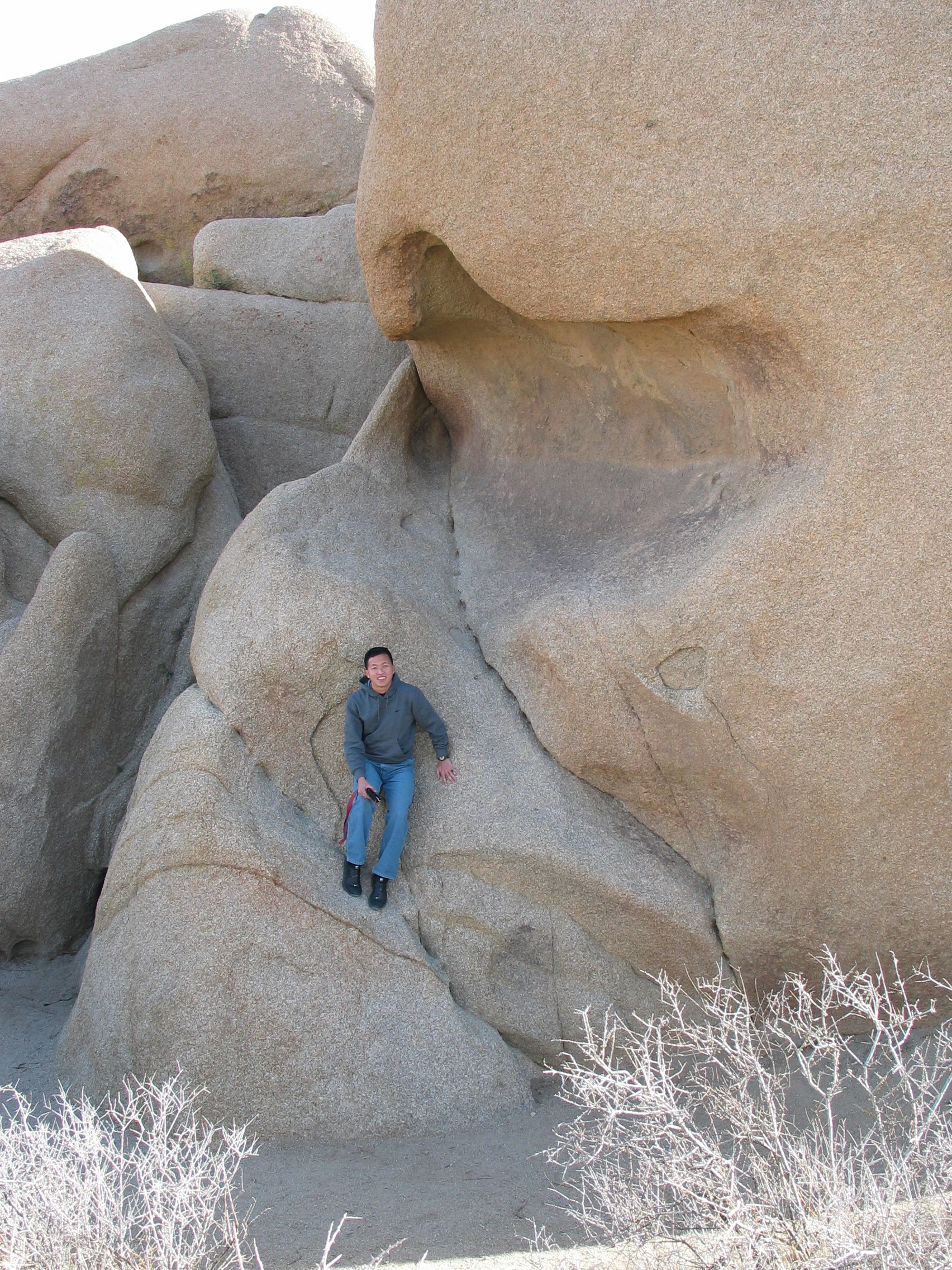
Lucian at the Joshua Tree National Park in southern California. He studied Management Information System at the University of Arizona.
So, “slumped onto a chair” with a book on HTML which he had borrowed from the library, Lucian spent the night feverishly creating his first website to pen his thoughts to his girlfriend, Faith.
“I felt like I was dying. I had to tell my girlfriend. So, I learnt how to create a website. The adolescent need to impress a girl is a really strong motivator.”
The result was Tribolum, a personal website on which he could write to her, because this was the year 2000 and phone calls were expensive. It was also hard to overcome the different time zones.
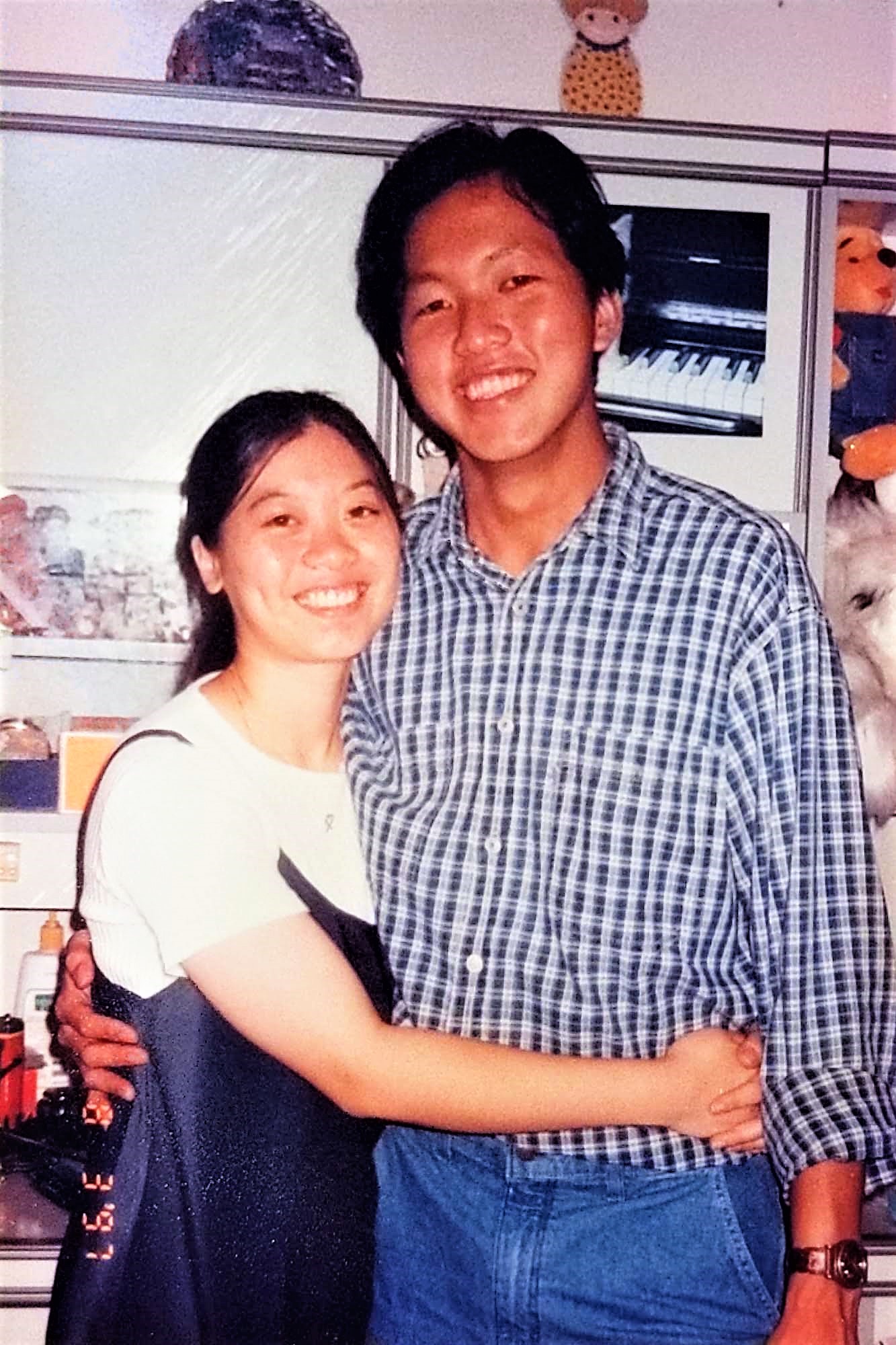
A desire to communicate with Faith led Lucian to create his first website which is still in existence now.
“As I started journaling day after day, the site became a blog before blogging was a thing.”
When Faith complained that the site took too long to load, which meant she had not kept up with his posts, Lucian set about re-designing the website. Optimising for download speed spurred him to delve into frontend web development.
“It was always about solving a problem,” he said of every step he took to learn new skills.
Praying for places and people
Lucian has since had the chance to apply his skills in the big leagues. After a stint as a commercial food photographer, he joined the Navigators and created their online bookstore.
“This wasn’t the way I planned it but God opened up a way and now I get to teach.”
Then, he worked at the Ministry of Education. He developed their website, and built their first blog Schoolbag.sg to “highlight stories from the softer side of education”.
Now, he uses his skills to make the Internet a safer place for all.
“I joined Google because I believe it does a lot of good. Besides making information on the Internet accessible, it has also made services like email available for many of us who otherwise would not be able to afford it.”
Much of Lucian’s job involves working with non-profit organisations, education departments and governments around the world to put online safety curriculum in place so everyone can adopt safe digital habits.
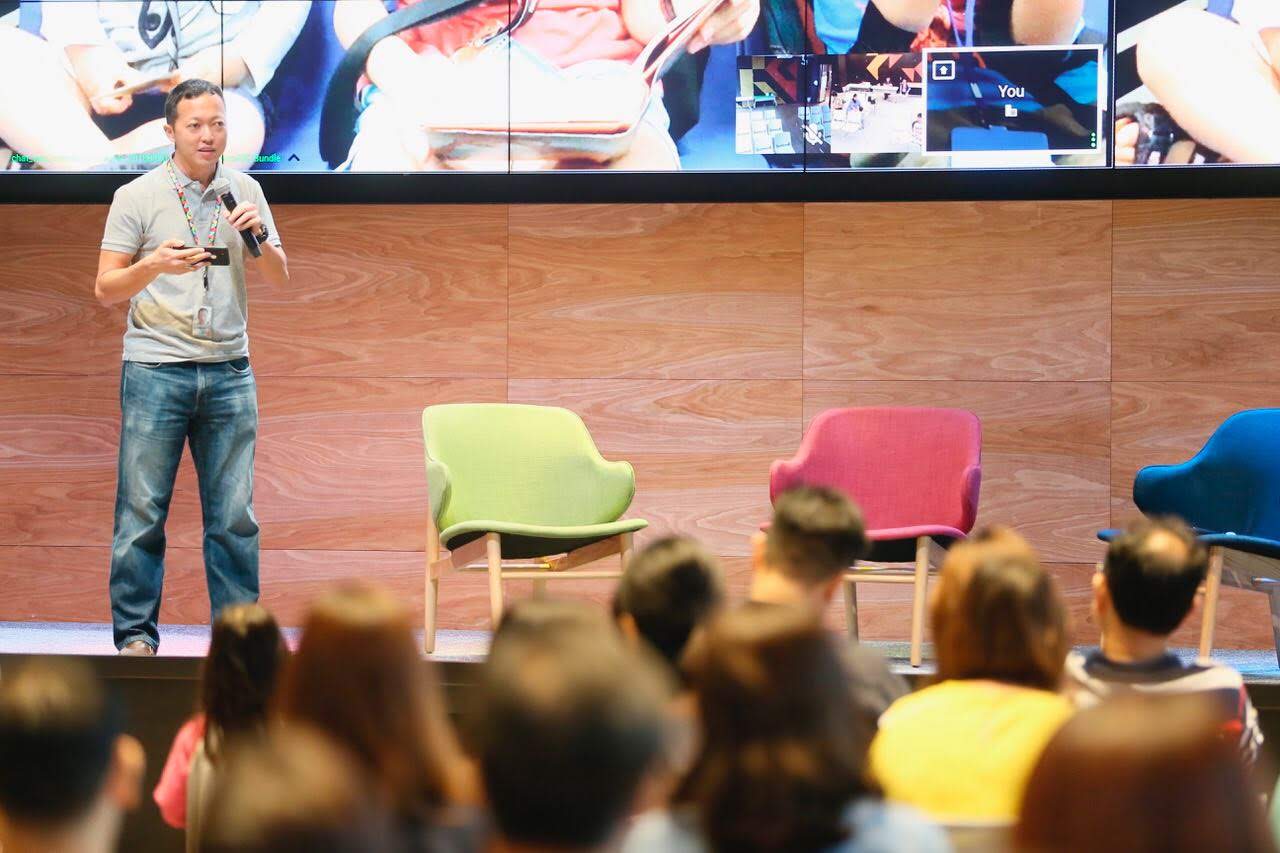
Lucian had always wanted to be a teacher. Now, his job at Google lets him teach people around the world about online safety.
“We reach out to the elderly to teach them to be careful about online scams; to parents to tell them about how best to use technology wisely in the home; and to youths to inspire them to be a positive force against cyberbullying.”
“I get to see people from around the world and God has opened up my eyes to their struggles.”
“I wanted to be a teacher. This wasn’t the way I planned it but God opened up a way and now I get to teach.”
For someone who confesses to never having travelled much – “my passport used to be totally blank except for church camps” – travelling is now central to getting his job done.
“I get to see people from around the world and God has opened up my eyes to their struggles with different things as well as the universal themes”
These insights have led him to pray for the places and people he has visited.
Taking the Great Commission online
Because he is an advocate for Internet safety, Lucian is well apprised of its pitfalls. But he is adamant that the Internet can be a tool for much good in God’s work as well.
“We need to do things that are good and right and pleasing to God on the Internet,” he insists.
“We need to make the Word of God available for people to find it, proclaim it from the rooftops.”
“Instead of complaining about the content we see on the Internet, can we put things up that are life-giving and supportive, and show people more of who God is?”
Asked for examples, he talks about groups conducting virtual English tuition for children in Thailand, or Sunday School kids who invite their friends who live overseas to join their online Sunday School lessons.
During this pandemic, he helped his church start its livestreaming capabilities.
“The pandemic forced churches to put all their content online. There has been an exponential increase in content.
“We need to be able to make it available to everyone. We need to be more fearless with the Word of God, make it available for people to find it, proclaim it from the rooftops in keeping with the Great Commission.”
Salt&Light Family Night: Help! Screens are taking over my family’s life
Too much screen time has always been an issue. Plugged into the virtual and disconnected from the real, over dependency on devices in children has been linked to sleep disorders, physical problems such as obesity and poor eye-sight, and behavioural and social issues.
The problem is not limited to children and youths. Whether its incessant social media use, compulsive Internet consumption or gaming on computers, adults can get just as addicted.
There is even a name for it – Screen Dependency Disorder (SDD)
The pandemic has exacerbated all this. Now, not only is leisure time dominated by devices, work and school depend heavily on screen use as well.
In a study involving school-going children in Canada, researchers found that pre-Covid, children had an average increase of one hour a week of screen time between the ages of five and eight. During Covid-19, these same children had an average increase of 11 hours a week of screen time.
Families in Singapore are not exempt. So, what can parents do to help themselves and their children unplug? How can families use screen time for good? How can families use social media to create and not merely consume?
Trust and Safety Transparency Lead at Google Asia-Pacific, Lucian Teo, whose job it is to educate people about online safety, will be on the panel to tackle these questions.
Date: October 26, 2021
Time: 8.30m–10pm
Cost: Free
Click here to register
About the Organiser:
Satl&Light is a Christian news digital platform where believers can unite in spirit and purpose to see God in the 9-to-5, to influence and to impact, to find meaning in the mundane and to wrestle with doubt and despair in faith – and find amazing grace for the journey ahead.
About the Hosts:
Carol Loi is the International Director of Generations of Virtue, a ministry committed to transforming culture, one family at a time. She runs a social enterprise Village Consultancy that provides digital literacy education as well as John Maxwell Certified training on leadership & family life. She and her husband are raising two teenagers.
Alex Tee is a former banker who left the corporate world to home-school his three young children. His deepest desire is to prayerfully raise children who seek first the kingdom of God and His righteousness. He is part of the Elijah 7000 group of fathers who meet every Saturday at dawn to intercede for families and the nation.
RELATED STORIES:
“Could Big Data be something evangelical?” challenge visionaries Jeff Cheong and Dr Freddy Boey
We are an independent, non-profit organisation that relies on the generosity of our readers, such as yourself, to continue serving the kingdom. Every dollar donated goes directly back into our editorial coverage.
Would you consider partnering with us in our kingdom work by supporting us financially, either as a one-off donation, or a recurring pledge?
Support Salt&Light
